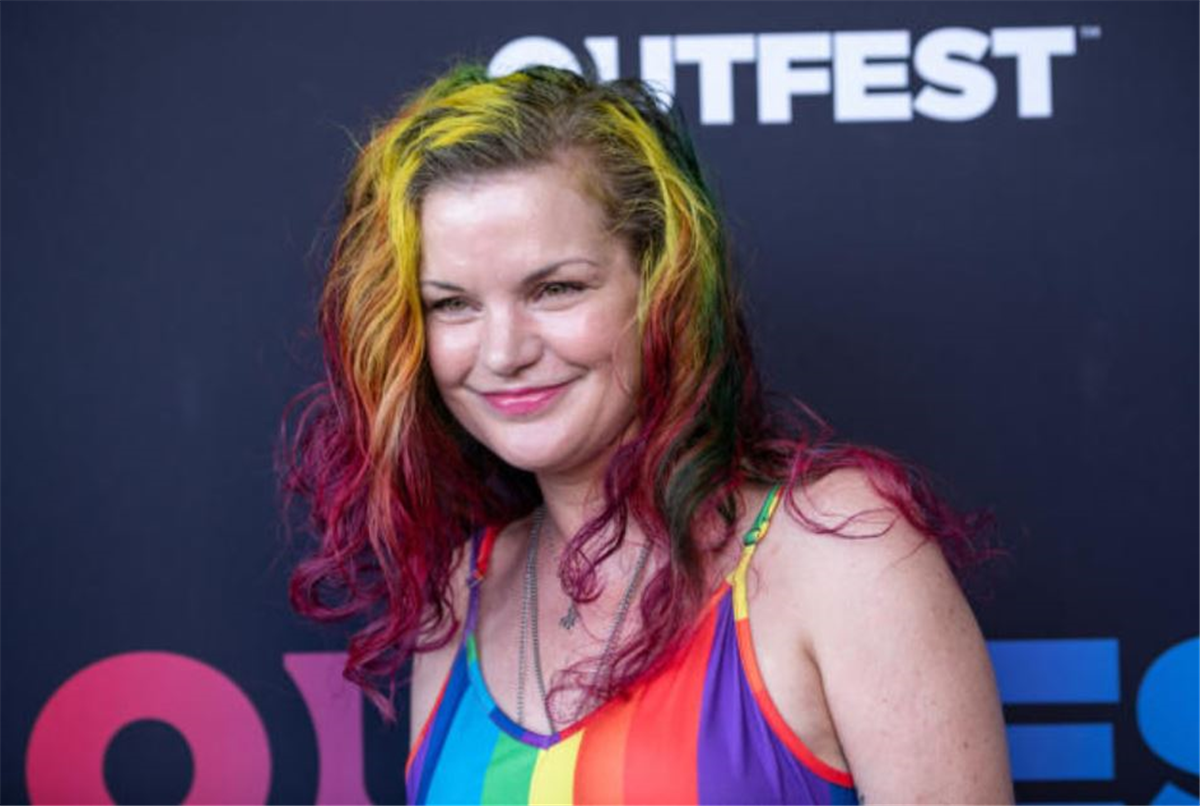NCIS star Pauley Perrette’s entire life has been spent as an ally for the LGBTQ+ community, so it’s no wonder that when she branched into producing and directing, the untold stories of these men and women were at the forefront of her mind.
She began with 2013’s Citizen Lane, about one of the 20th century’s most extraordinary civil rights attorney’s, ‘freedom rider’ Mark Lane, and now, 11 years on, has helped to produce the new documentary Studio One Forever, telling the untold story of Los Angeles’ iconic disco which became a beacon of hope for men in the 1970s and 1980s.
“This is the [story] that [director Marc Saltarelli] has been talking about and dreaming about for so long – it’s important for history’s sake, and it’s important for the message,” she tells HELLO!
“There’s one reason I love documentaries, and it is because we have to remember. In society today, it [feels] like we’re not paying attention to history and if you don’t, we are going to repeat mistakes,” she said.
“This film has a lot to do with prejudice and racism and the unfair nature of the way things were – and it really brings that to light in such a very human way.”
At the height of its popularity in the late 1970s and 1980s, Studio One saw the merging of the gay community and Hollywood elites: Bette Davis and Jimmy Stewart were both regulars, Chita Rivera, Joan Rivers and Ike & Tina Turner often performed there, while Sammy Davis Jr. and Paul Newman were on its board of directors.
But despite the freedom and joy these spaces offered, Pauley acknowledges – as does the documentary – that there was still oppression within the community, particularly racism.
“That’s one thing I love about documentaries, they are educational entertainment – I was raised by gay clubs but I was unaware of the racism, and it’s heartbreaking. So this was such an interesting walk through history and the way that celebrity influence starts normalizing cultures that you may know nothing about or have had untruths taught to you”.
Pauley now uses her own fame, after starring as the beloved character Abby Sciuto in NCIS for 15 years, to help normalize the communities to her own fans.

“I’ve said so often that in every civil rights movement, whichever one it is, we need each other. Some of the most important voices for women’s rights are men, for people of color, white people need to stand up, and especially for the LGBT community, straight allies need to say, ‘This is wrong.’
“Otherwise, people that hold bigotry as their standard will see each movement as a self-serving movement instead of being a civil rights movement; it’s so hard to turn a mind around that has been taught to hate but it’s so easy to love”.
Pauley, 55, was mostly raised in the conservative south, bouncing around between Georgia, Alabama, Tennessee, North Carolina, South Carolina, as well as New York, New Jersey, and California.
Even as a young teenager, she says she would be out looking for drag clubs in 1980s Georgia, and after studying criminal justice in college, she worked in the club kids scene in New York.
“Drag clubs are always just more fun and even coming from such a conservative background I was always in that scene, because it was free and it was fun and people were nice to each other and I love that,” she said.
“I still have such a sense of nostalgia for what that gave me. Even as a straight ally, it was freedom. It really represented something to me that was new; as the film says, so many times and from each person that’s speaking, you could walk through the doors and you felt safe. It was your one place on earth where you could just be yourself, you could breathe. That’s what’s so important.”
Pauley remains an active ally for the community, and has seen the way that the mainstream has embraced LGBTQ+ superstars over the last decade or so.
“RuPaul Charles has changed the world and I mean it, so seriously,” says Pauley; she met RuPaul when she was 17.
“I’m a sociology major so when I talk about this, it’s a science to me. If we really look at what RuPaul has done for society… by coming out with a funny fun pop song [“Supermodel (You Better Work)”] and then bringing RuPaul’s Drag Race into the world, everything Rupaul does is done with such a sense of joy because that’s who RuPaul is – and he has a deep knowledge of wanting to change the world and wanting to spread love.”
